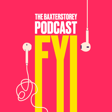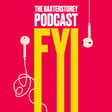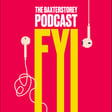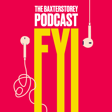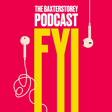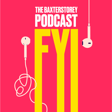
S2 EP:1 Beans is How with Bettina Campolucci Bordi
Welcome back to FYI, the BaxterStorey Podcast for Season 2!
In our first episode of 2024, join Sam Wakeham, Head of Creative at BaxterStorey, as she interviews the incredible Bettina Campolucci Bordi.
Bettina is a versatile freelance chef, dedicated blogger, and founder of Bettina’s Kitchen. She is also the accomplished author of three cookbooks: 'Happy Food,' '7 Day Vegan Challenge,' and her latest release, 'Celebrate: Plant Based Recipes for every Occasion.'
In this episode, Bettina discusses her career in hospitality and the journey from working in the bustling industry to ultimately running her own business, Bettina's Kitchen. She shares insights into her childhood, growing up in East Africa, where fishermen sold fresh catch at her doorstep, and then moving to Sweden at 11, adapting to the world of supermarkets and processed food in Europe. Her love for cooking, instilled by her family, paved the way for a remarkable career and the founding of her own business.
With January marking the season of traditions like Veganuary, Bettina offers valuable tips for incorporating more beans into your diet and shares her perspectives on the Beans Is How movement.
Don't miss out on this insightful episode. Subscribe to our channel for new episode alerts.
